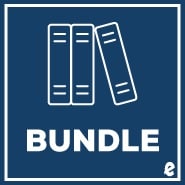ALERT: Before you purchase, check with your instructor or review your course syllabus to ensure that you select the correct ISBN. Several versions of Pearson's MyLab & Mastering products exist for each title, including customized versions for individual schools, and registrations are not transferable. In addition, you may need a CourseID, provided by your instructor, to register for and use Pearson's MyLab & Mastering products.
Packages
Access codes for Pearson's MyLab & Mastering products may not be included when purchasing or renting from companies other than Pearson; check with the seller before completing your purchase.
Used or rental books
If you rent or purchase a used book with an access code, the access code may have been redeemed previously and you may have to purchase a new access code.
Access codes
Access codes that are purchased from sellers other than Pearson carry a higher risk of being either the wrong ISBN or a previously redeemed code. Check with the seller prior to purchase.
--
The Little Penguin Handbook continues to revolutionize the way pocket handbooks present information. With more visuals and sample documents than other essential handbooks, this handy full-color reference gives students just what they need to know about the writing and research processes, while providing extensive coverage of documentation and grammar. With a reorganized and updated research section, new visual “maps” of the research and documentation processes, an updated section on writing in the disciplines, a new chapter on online courses, and a new chapter on argument, The Little Penguin Handbook continues to be an invaluable resource for students in composition courses and in courses across the curriculum.








